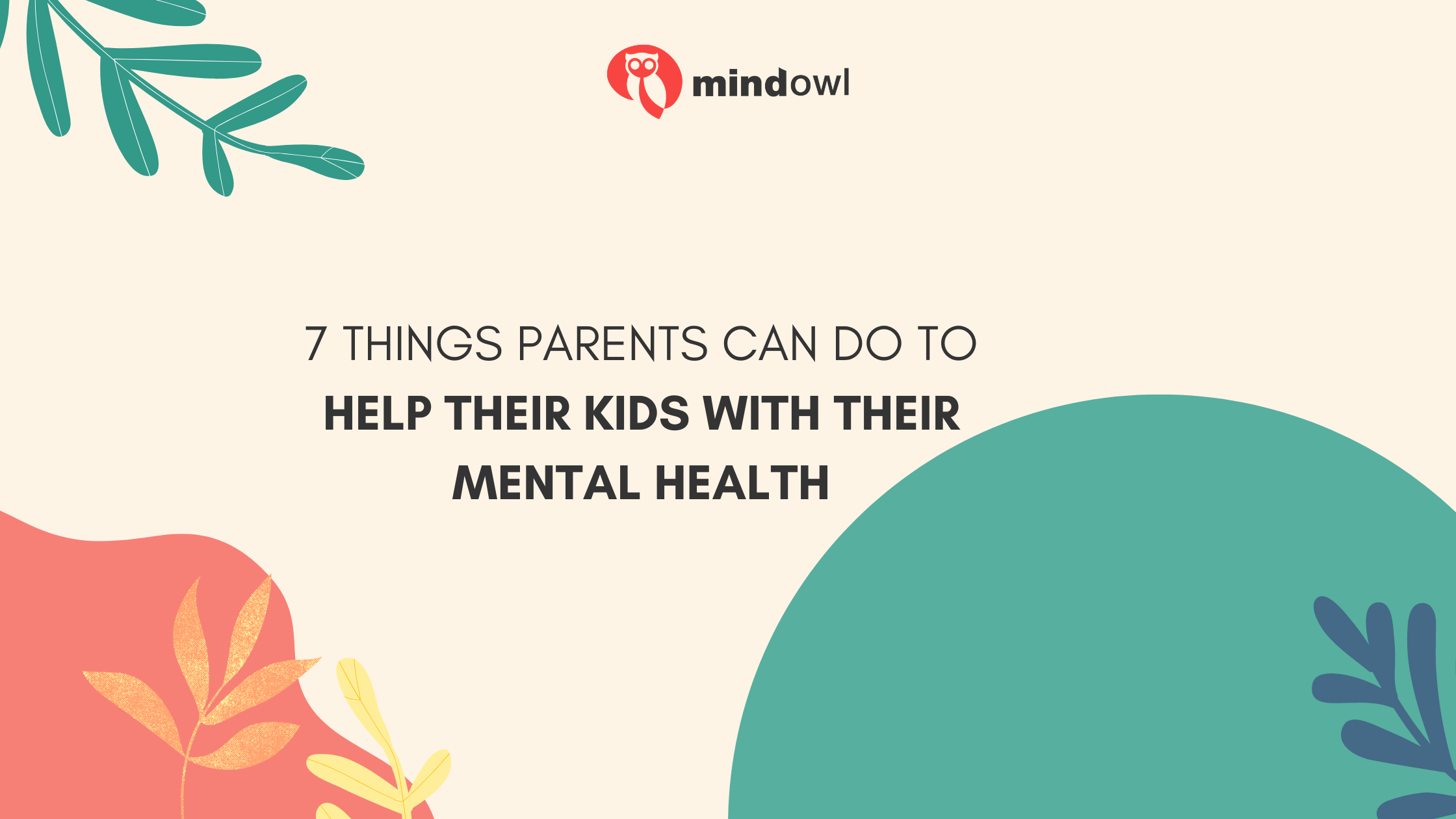Mental health plays a crucial role in the overall well-being of children, impacting their emotions, thoughts, and behaviors. As parents, understanding and supporting your child’s mental health can significantly influence their happiness and development. This guide offers some actionable steps parents can take to foster a nurturing environment and provide the necessary support to help their kids thrive mentally and emotionally.

Image Source: https://www.pexels.com/photo/silhouette-photo-of-a-mother-carrying-her-baby-at-beach-during-golden-hour-51953/
Seek Professional Help When Needed
It’s important to recognize when your child may benefit from professional support. If you notice persistent changes in their behavior, mood, or academic performance, don’t hesitate to seek help from a mental health professional. Early intervention can make a significant difference in their well-being.
Normalize mental health care by talking openly about it and emphasizing that seeking help is a sign of strength, not weakness. Work closely with healthcare providers to create a comprehensive support plan tailored to your child’s needs, ensuring they have the resources to manage their mental health effectively. Whether you need therapy in Denver or any other location, prioritize your child’s mental health, and don’t shy away from seeking professional help when needed. It can make a significant impact on their overall well-being.
Foster Open Communication
Creating an environment where your children feel comfortable discussing their thoughts and feelings is crucial. Encourage daily check-ins and let them know it’s okay to talk about what’s on their mind without fear of judgment or repercussions. By normalizing these conversations, you help build a foundation of trust and understanding.
Actively listening to your child’s concerns is just as important. This means giving them your full attention, acknowledging their feelings, and validating their experiences. Over time, this establishes a two-way communication channel that can significantly mitigate stress and anxiety.
Promote a Healthy Lifestyle
A balanced diet, regular physical activity, and adequate sleep are essential components of mental health. Encourage your children to engage in outdoor play, sports, or other activities that get them moving. Exercise releases endorphins, which can boost mood and alleviate symptoms of depression and anxiety.
Nutrition also plays a vital role. Provide your kids with a variety of healthy foods that can improve their concentration and energy levels. Similarly, maintaining a consistent bedtime routine ensures they get sufficient rest, which is critical for emotional resilience.
Be a Role Model
Children often emulate the behavior of their parents, so it’s important to model healthy coping strategies and emotional regulation. Show them how you handle stress and make time for self-care practices such as yoga, meditation, or hobbies that bring you joy.
Demonstrate positive social interactions and conflict-resolution skills. When children see their parents communicating effectively and resolving problems calmly, they’re more likely to adopt these strategies themselves. This creates a supportive atmosphere where mental well-being is prioritized.
Create a Supportive Environment
A nurturing home environment can significantly impact your child’s mental health. Provide a space where they feel safe and loved, free from excessive criticism or unrealistic expectations. Set aside special family time to bond and create positive memories together.
Establishing routines and boundaries can also provide a sense of security and stability. Consistent schedules help children understand what to expect, reducing anxiety and creating a predictable and supportive environment where they can thrive.
Encourage Positive Relationships
Positive social interactions play a significant role in mental well-being. Encourage your children to build and maintain friendships, as strong peer connections can provide emotional support and reduce feelings of isolation. Help them navigate social situations and develop empathy and communication skills.
Be mindful of the influence of technology and social media. Guide your children in using these platforms responsibly and ensure they understand the importance of real-life interactions versus online connections. Balancing screen time is crucial for maintaining healthy relationships and overall mental health.
Limit Screen Time
Excessive screen time can negatively affect your child’s mental health, influencing their mood, behavior, and overall well-being. Encourage a healthy balance by setting limits on the amount of time they spend on electronic devices, including smartphones, tablets, and computers. Establishing screen-free times, such as during family meals, before bedtime, and while doing homework, can foster better habits.
Promote alternative activities that do not involve screens, such as reading, playing board games, engaging in creative arts, or spending time outdoors. By actively participating in these activities with your children, you can demonstrate the value of offline experiences. Educating your kids about the potential downsides of excessive screen use and the importance of real-world interactions can empower them to make healthier choices independently.

Image Source: https://unsplash.com/photos/woman-hugging-boy-on-her-lap-KQCXf_zvdaU
It’s crucial for parents to take an active role in promoting their child’s mental health. By seeking professional help when needed, fostering open communication, promoting a healthy lifestyle, being a positive role model, creating a supportive environment, encouraging positive relationships, and limiting screen time, you can provide the essential support your child needs to thrive mentally and emotionally. Remember that every child is unique and may require different strategies or interventions. Stay attuned to your child’s needs and always prioritize their well-being above all else.
MindOwl Founder – My own struggles in life have led me to this path of understanding the human condition. I graduated with a bachelor’s degree in philosophy before completing a master’s degree in psychology at Regent’s University London. I then completed a postgraduate diploma in philosophical counselling before being trained in ACT (Acceptance and commitment therapy).
I’ve spent the last eight years studying the encounter of meditative practices with modern psychology.

